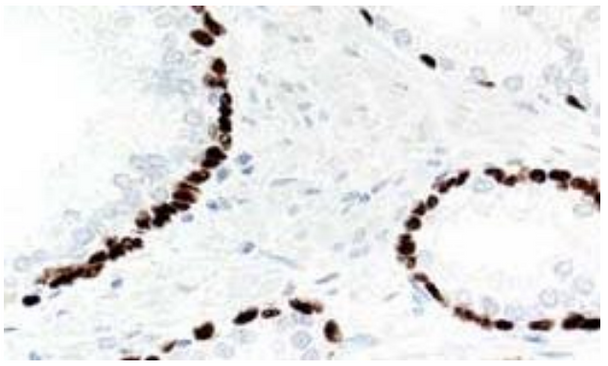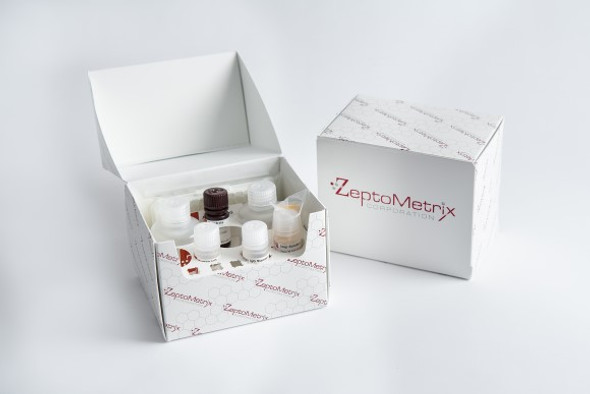p63 clone 4A4 | ILM8651
- SKU:
- ILM8651-C01 | ILM8651-C05 | ILM8651-C1
- Availability:
- In Stock
- Reactivity:
- Human
- Species of origin:
- Mouse
- Isotype:
- IgGK
Description
p63 clone 4A4 | ILM8651
The p63 gene is located at chromosome 3q27-29 and belongs to the p53 gene family. p63 plays a critical role in the growth
and development of many epithelial organs. p63 is confined to basal cells of squamous epithelia (including epidermis and
hair follicles) and urothelium, as well as basal cells/myoepithelial cells in breast, sweat glands, salivary glands, and prostate.
The expression of p63 has clinical value as a diagnostic marker in various tumor types. Thus, p63 helps to distinguish
squamous cell carcinoma from adenocarcinoma in the lung or urothelial carcinoma from renal cell carcinoma. As known
marker of basal cells in breast and prostate, p63 expression is useful for prostate cancer diagnosis and identifies a basal
phenotype in some breast carcinomas.
Intended use: For Research Use Only
Reactivity: Human
Clone: 4A4
Species of origin: Mouse
Isotype: IgG K
Control Tissue: Breast, normal prostate
Staining: Nuclear
Presentation: tissue culture supernatant with 15mM sodium azide
Application and suggested dilutions:
Pretreatment: Heat induced epitope retrieval in 10 mM citrate buffer, for 20 minutes is required for IHC staining on
formalin-fixed, paraffin embedded tissue sections.
• Immunohistochemical staining of formalin-fixed, paraffin embedded tissue section
(dilution up to 1:100-1:200)
The optimal dilution for a specific application should be determined by the investigator.
Note: Dilution of the antibody in 10% normal goat serum followed by a goat anti-mouse secondary antibody-based
detection is recommended.
Storage & Stability: Store at 2-8 C. Do not use after expiration date printed on the vial.






